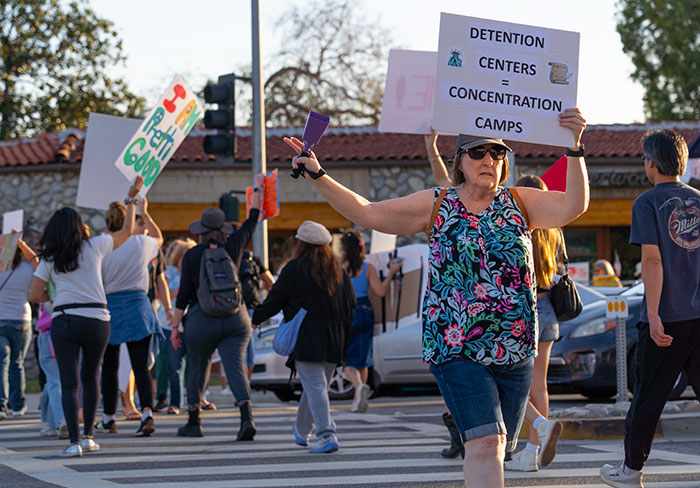Council approves police chief retirement, appointment
The Claremont City Council approved the appointment of retiring police chief Paul Cooper as interim chief o
Mr. Cooper announced his retirement to City Manager Tony Ramos on November 4, one day after Measure PS failed. According to the city, Mr. Cooper’s final day as police chief will be December 31, 2015, with his retirement beginning January 1, 2016.
During discussion, Councilmember Opanyi Nasiali wondered if the city could bring an outside candidate as interim, possibly on a less expensive contract.
“There’s a learning curve with that,” Mr. Ramos responded. “Most likely it will be someone who is retired as well, and that will just take longer to get that person up to speed and move all of the issues we have before the police department forward.”
Mr. Ramos asserted that leaving Mr. Cooper as interim chief will save the most money for the city, to the tune of $145,000.
“The reason we have that $145,000 in savings is because we’re not paying the PERS, we’re not paying deferred compensation, we’re not paying medical benefits—all of that will have to be paid for by the chief because he’s retired,” Mr. Ramos said. “We will not be paying any of those, so that’s where our savings come from.”
No discussion was held at the council meeting as to whether a current Claremont police captain or lieutenant could possibly fill the role.
The proposed employment agreement with Mr. Cooper has “a total maximum cost to the city of approximately $218,000 including $193,000 for salary and $25,000 in workers’ compensation insurance and Medicare costs combined.”
In an effort to prevent “double-dipping,” CalPERS mandates that after retirement, any public agency employee can earn only 173.333 of the average monthly salary of someone in a similar position.
Hours are not to exceed 960 in any fiscal year. Mr. Cooper’s interim assignment could straddle two fiscal years—January to July 2016 and August to December 2016—allowing for full-time employment.
CalPERS also says that retired public employees cannot receive “any benefit, incentive, compensation in lieu of benefits or other form of compensation in addition to the hourly pay rate.”
Mr. Ramos said that the extra cost of workers’ compensation and Medicare is tacked on due to state law.
“[Mr. Cooper] only gets salary,” Mr. Ramos said. “The state mandates that we have to pay workers comp and Medicare to all employees. Not even PERS can touch that.”
As interim, Chief Cooper will receive the $193,000 in hourly pay on top of his PERS retirement salary of $175,799, or 90 percent of his highest salary.
Between his hourly wage and CalPERS, Mr. Cooper will earn upwards of $370,000 as interim chief next year, should his appointment extend to the end of 2016. Funding will be paid for through the operating budget of the police department.
CalPERS investments now pay 64 cents of every dollar, according to CalPERS. In addition to investment income, money paid to CalPERS pensioners comes from a combination of public agency and employee contributions. On average, cities contribute 22 cents of every pension dollar paid. Employees who retire with CalPERS benefits contribute anywhere from eight to11 percent of their take-home pay to help fund their own pensions. According to Chief Cooper’s latest contract, he contributed nine percent.
Councilmember Sam Pedroza praised Mr. Cooper for his dedication to the force and said the chief’s retirement was not a result of the failure of Measure PS.
“This decision was made before this vote even happened,” Mr. Pedroza said.
At Tuesday’s meeting, Mr. Ramos explained the reason Mr. Cooper is submitting his retirement now is his desire to get his CalPERS paperwork in order before January 1.
“So that is why he needs this additional few weeks to get that in and why he is before you this evening,” Mr. Ramos said. “It is not because of Measure PS.”
During public comment, Claremont resident and co-chair of the Yes on Measure PS campaign Betty Crocker thanked Mr. Cooper for his work on the force.
“He has worked tirelessly on a model that is known as ‘community policing,’ and I believe Chief Cooper to be the example of that,” Ms. Crocker said.
Mayor Corey Calaycay sought to dispel concerns critics may have about Mr. Cooper collecting PERS while he works as interim chief.
“There’s nothing wrong with how we’re handling the situation,” Mr. Calaycay said. “And I think the point has been made that any interim, if you’re going to get an interim, is going to be somebody that is previously retired from the PERS system. You’re not going to get around the fact that for people who have heartburn about PERS or the elements of PERS. You’re still going to have a situation where it’s not going to address some of their concerns.”
Mr. Calaycay explained that other city employees, such as interim Community Services Director Pat Molloy and city contractor Belle Newman, currently receive CalPERS benefits.
Mr. Pedroza agreed with the city’s recommendation, claiming it’s the best-case scenario while the city looks for the chief’s replacement.
“These are really big shoes to fill. I appreciate we were given at least a year to really get this going and find that fit for our city,” Mr. Pedroza said. “I’ll admit, and I think it’s no secret, Claremont’s a tough town. It’s a tough town to manage and I’m sure it’s a very tough town to police. It’s a big task to try to find that fit, not replace, but to carry on the good work that Chief Cooper has had in this city and our police department is known for.”
The resolution passed unanimously, 4-0. Councilmember Larry Schroeder was absent. More on the other items presented during Tuesday’s council meeting will be included online and in the November 20 edition of the COURIER.
—Matthew Bramlett
news@claremont-courier.com










0 Comments